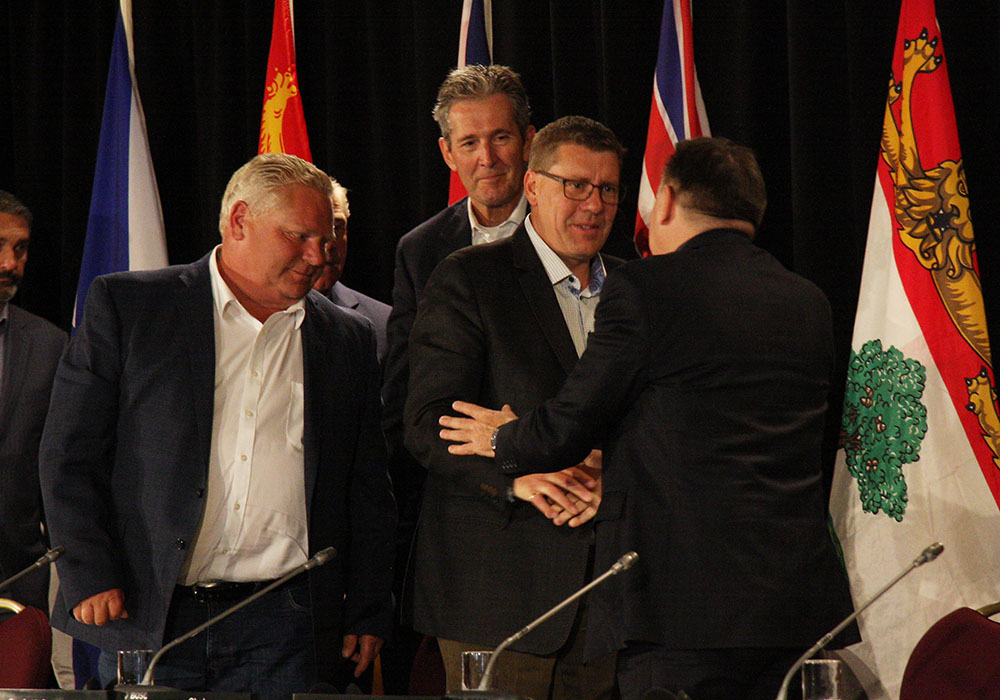SASKATOON — Alberta was the first to move, eliminating half of its exceptions to the Canadian Free Trade Agreement, after premiers recently committed to improve internal trade.
Procurement by several Alberta agencies, including the purchase of local food under the Supporting Alberta’s Local Food Sector Act, is no longer restricted.
“Since when are Alberta companies afraid of competition,” said Premier Jason Kenney during a news conference at the annual premiers’ meeting.
He said the exceptions to the 2017 agreement amount to a “stupid barrier” that costs Canadians money.
Read Also

Farmland advisory committee created in Saskatchewan
The Saskatchewan government has created the Farm Land Ownership Advisory Committee to address farmer concerns and gain feedback about the issues.
He said mutual recognition of licensed professionals and trades would improve labour mobility.
Manitoba Premier Brian Pallister said he was pleased with the commitment to work harder on reducing trade barriers within Canada because they amount to a seven-percent tariff on taxpayers.
“The process that we agreed to remove today that makes it difficult for provinces to remove exceptions is a really important aspect of this. We have still a number of exceptions in our country that allow provinces to preferentially purchase or offer advantage that shouldn’t be there,” he said.
Pallister said the biggest change has to happen federally because there are more exceptions at that level than anywhere, and he urged people to make it an election issue.
“It’s $1,500 per family per year by some estimates,” he said. “That’s not small change for a lot of Manitoba and Canadian families.”
Interprovincial trade was worth more than $406 billion in 2017.
Each province agreed to fully review its exceptions by the end of this year.
The premiers also called on Ottawa to attempt to negotiate an exemption to the Buy America policy in the United States, noting that the country is the largest trading partner for 11 of Canada’s 13 provinces and territories.
















